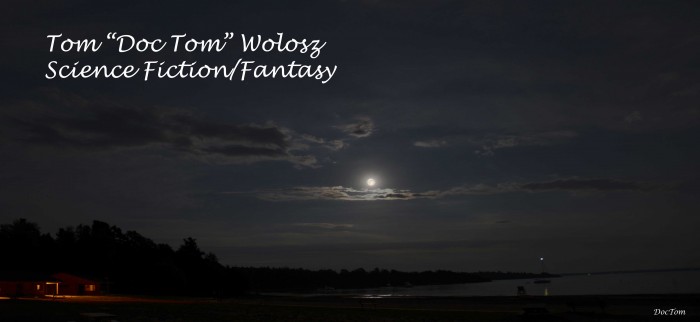Looking back over my old posts I realized I haven’t spent much time talking about characterization, having devoted only one post (#12) to it. Well, let’s change that.
In many stories (especially genre stories) characterization is the ignored feature. How often have you read a review (for a book, a movie, or a tv series) which describes the characters as one dimensional, caricatures, clichés, or cardboard cutouts? I’ll assume you’ve answered, “Plenty.” The reason is probably due to the writer’s emphasis on action, or plotting. In much genre writing the assumption often is that all the reader wants is Stanley or Silvie Rockjaw (hero) with a bit of backstory thrown in, and many admirable (if clichéd) attributes (pluck, beauty, determination, etc.). Secondary characters are often given a single attribute (somber or sunny disposition, trustworthy or cowardly, etc.) and used to form the backup for the story of the hero doing great things.
Now let me say, depending on the genre you want to write in, its quite possible there’s nothing wrong with this. There are literally some genres which have a standard plot format that readers expect, and, I assume, characterization standards too. So be very familiar with the genre and its requirements. If you decide you want to write a YA dystopian story, first read a few of the better ones carefully, concentrating on the characters, and jot down those character’s features. How well developed are they? Would you consider them real people, or the mythic creatures (with the prerequisite amount of teenage angst) all young adults dream of being? Is there a Holden Caulfield among them? A Ralph, Jack or Piggy? Probably not. Again, nothing wrong with that, especially if you are giving the readers what they want.
On the other hand, if you want to write a more deeply character driven story, then (no matter the genre) you need to spend a lot more time thinking about and developing your characters.
Let me add a word of caution here. Genre writing can easily lend itself to well thought out, character driven stories with a more literary bent, but many genre readers are not necessarily interested in such stuff. I just finished reading an excellent collection of short stories by Gene Wolfe (The Best of Gene Wolfe). Some truly excellent science fiction, horror and weird stories here, but never a best seller. My own book, Agony of the Gods is written as a more literary, character-based story, and while the few reviews I’ve gotten so far are good (my one comfort is that despite it being out since 2010 Wolfe’s book only has 2 more reviews on Amazon than mine), many of the reviews indicate that I’m dealing with readers who expect certain things in the sci-fi genre (My favorite comment: “Kill something, for f…’s sake.”). Oh, well.
Next time – developing characters.
